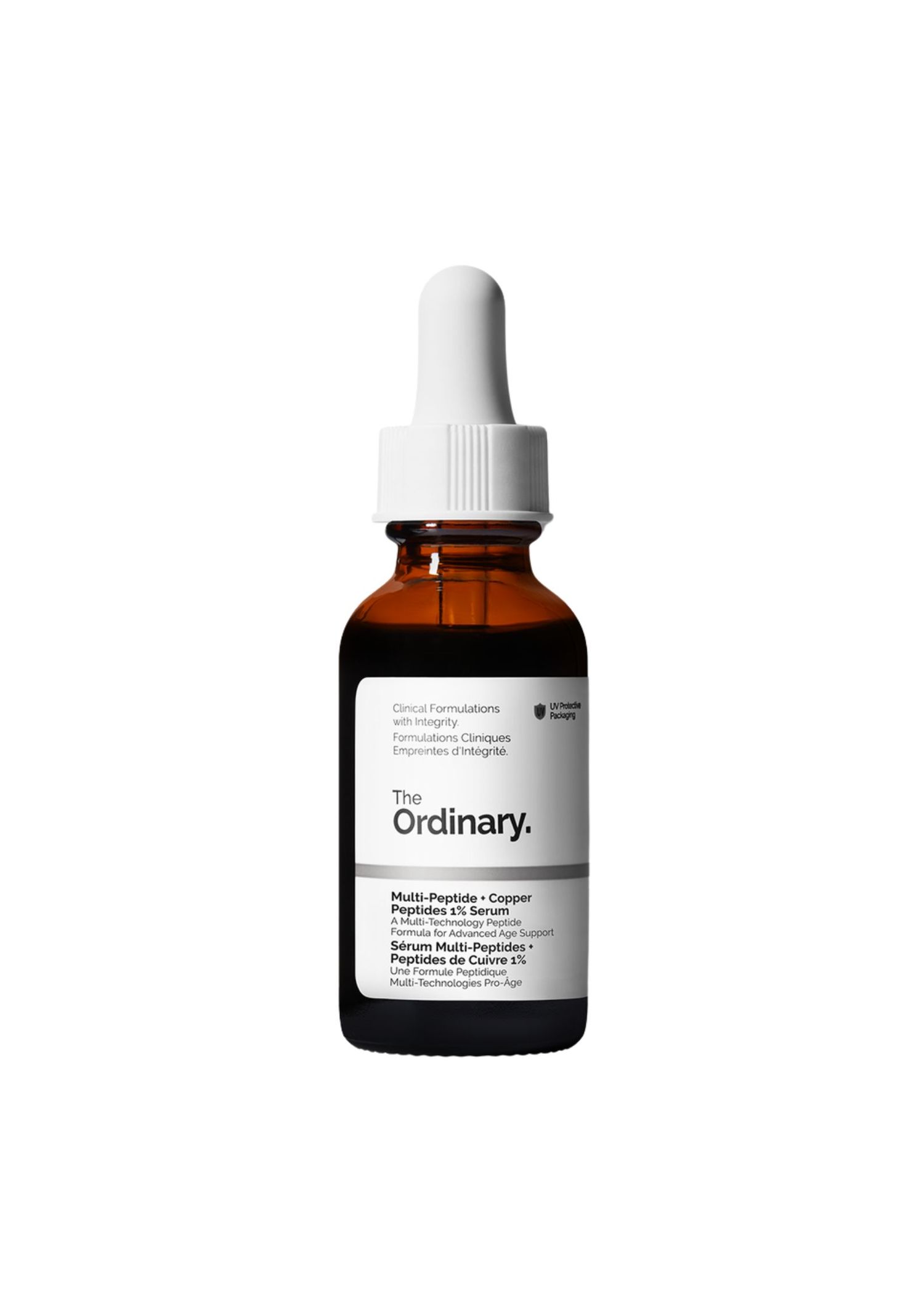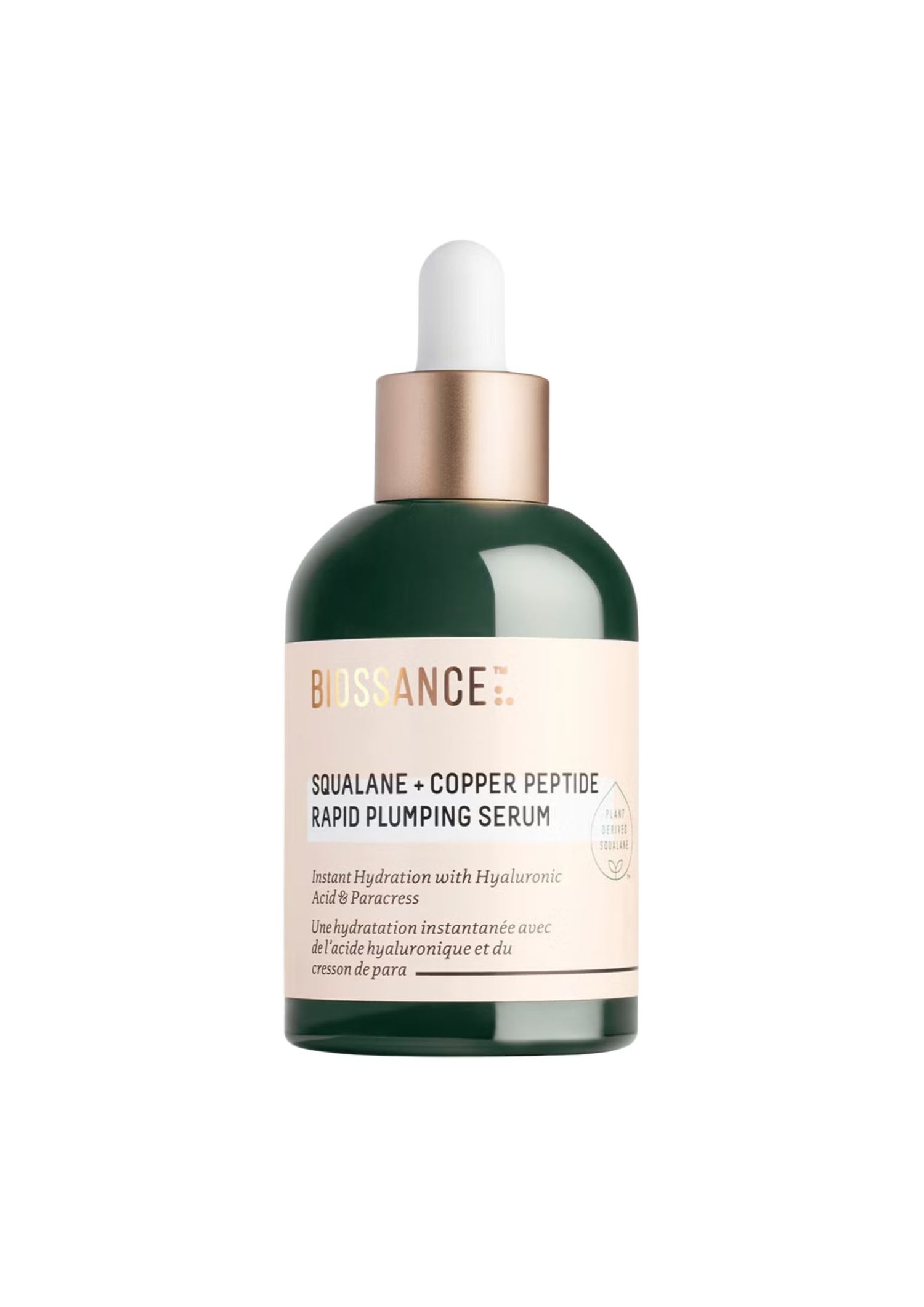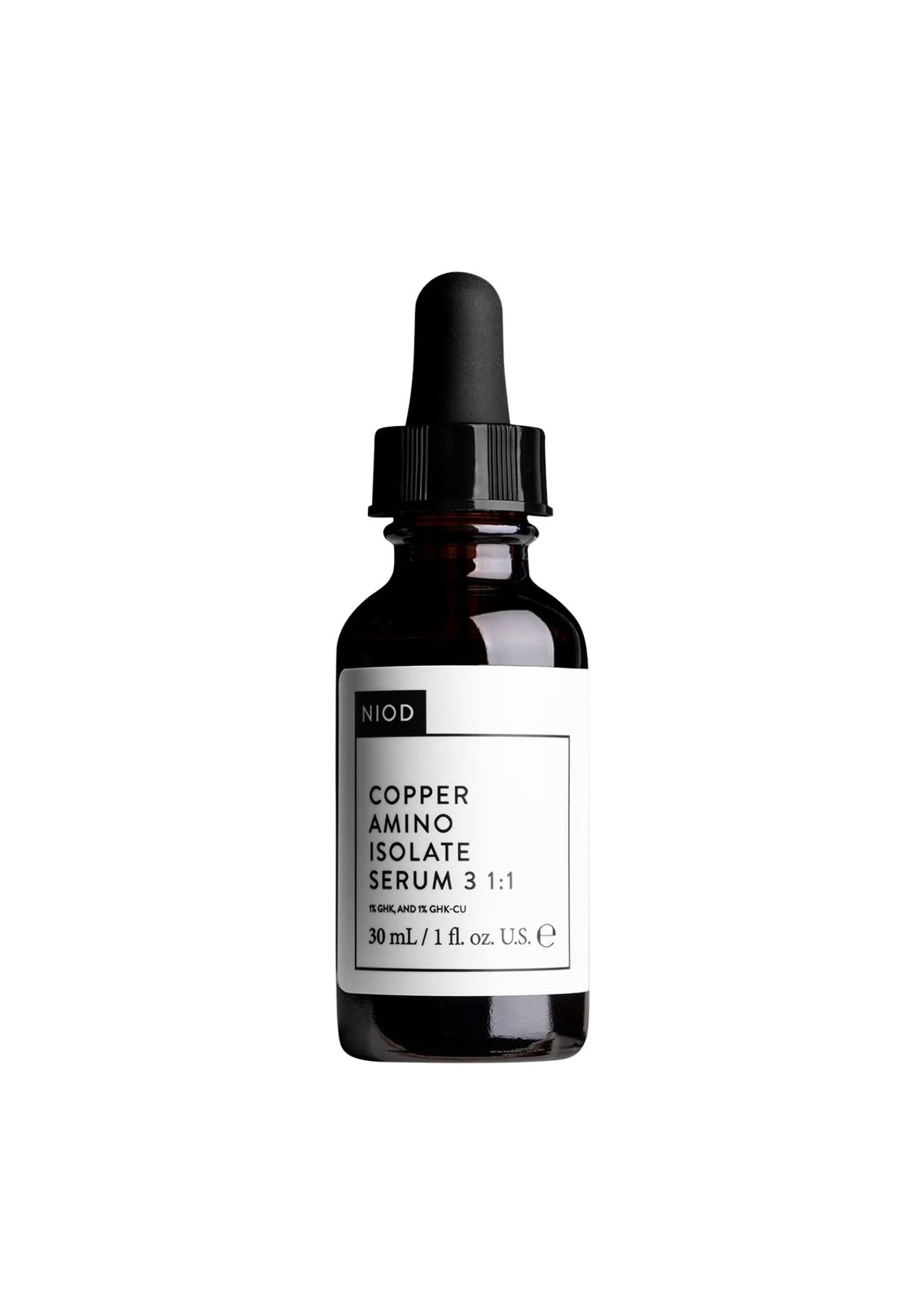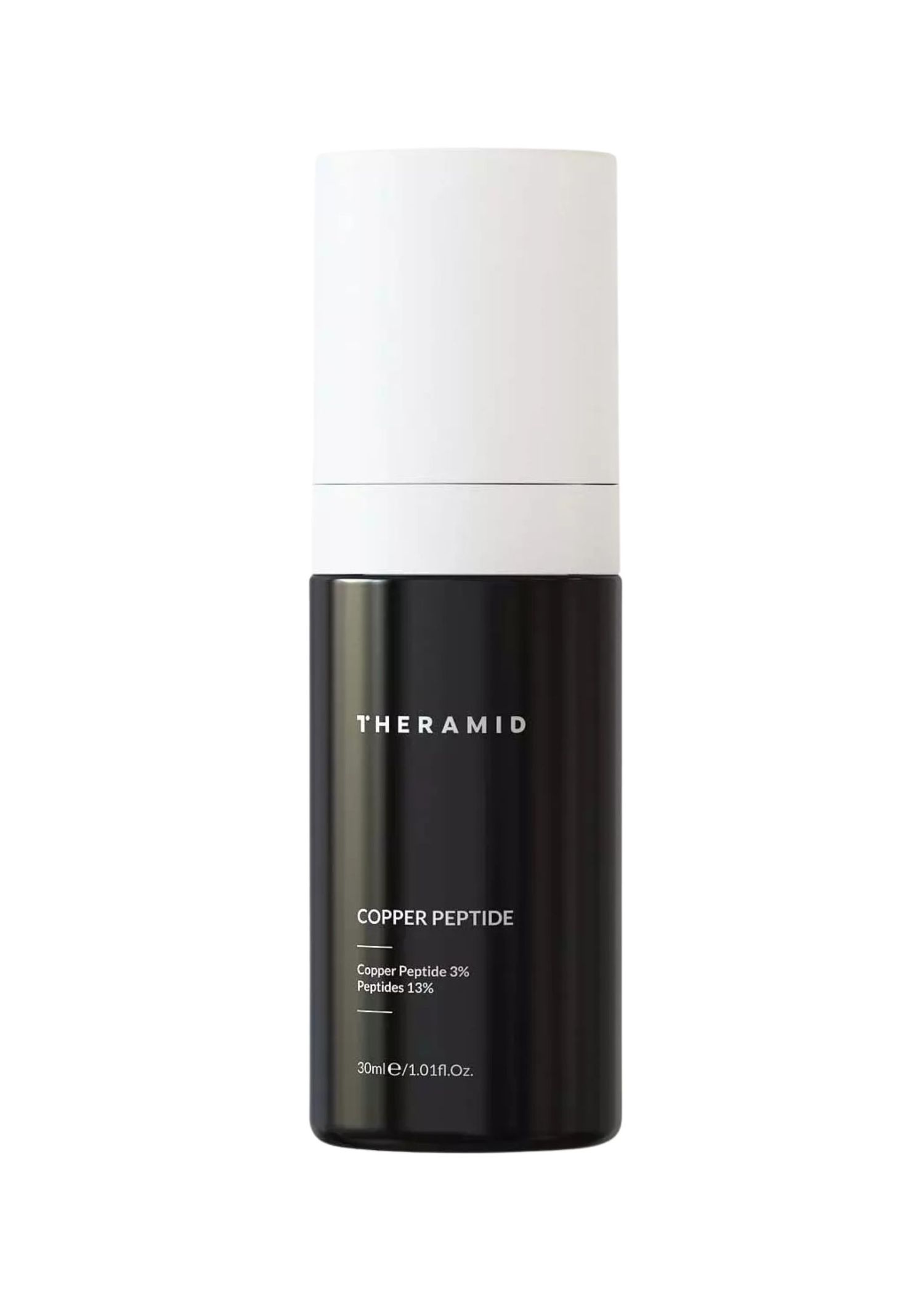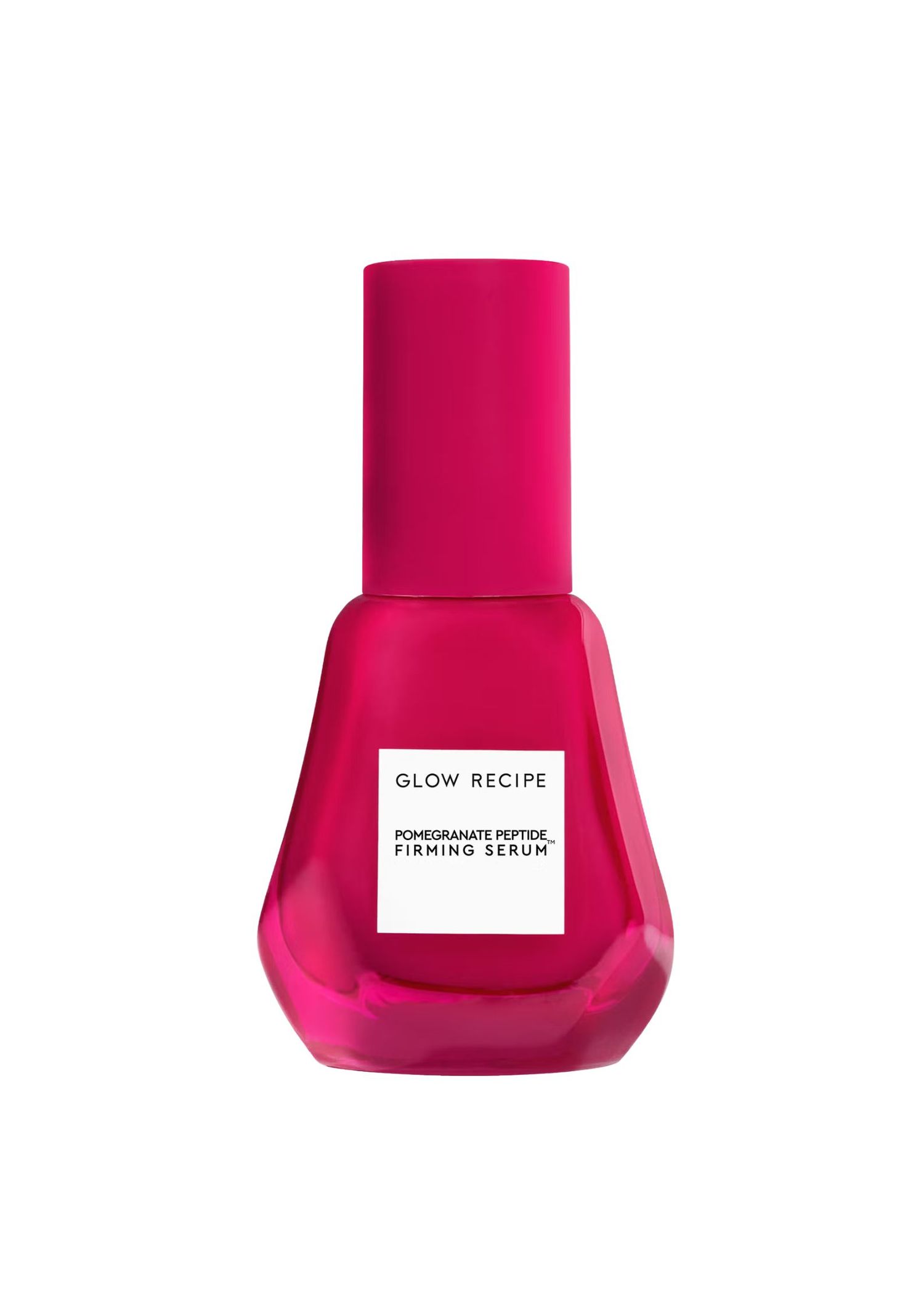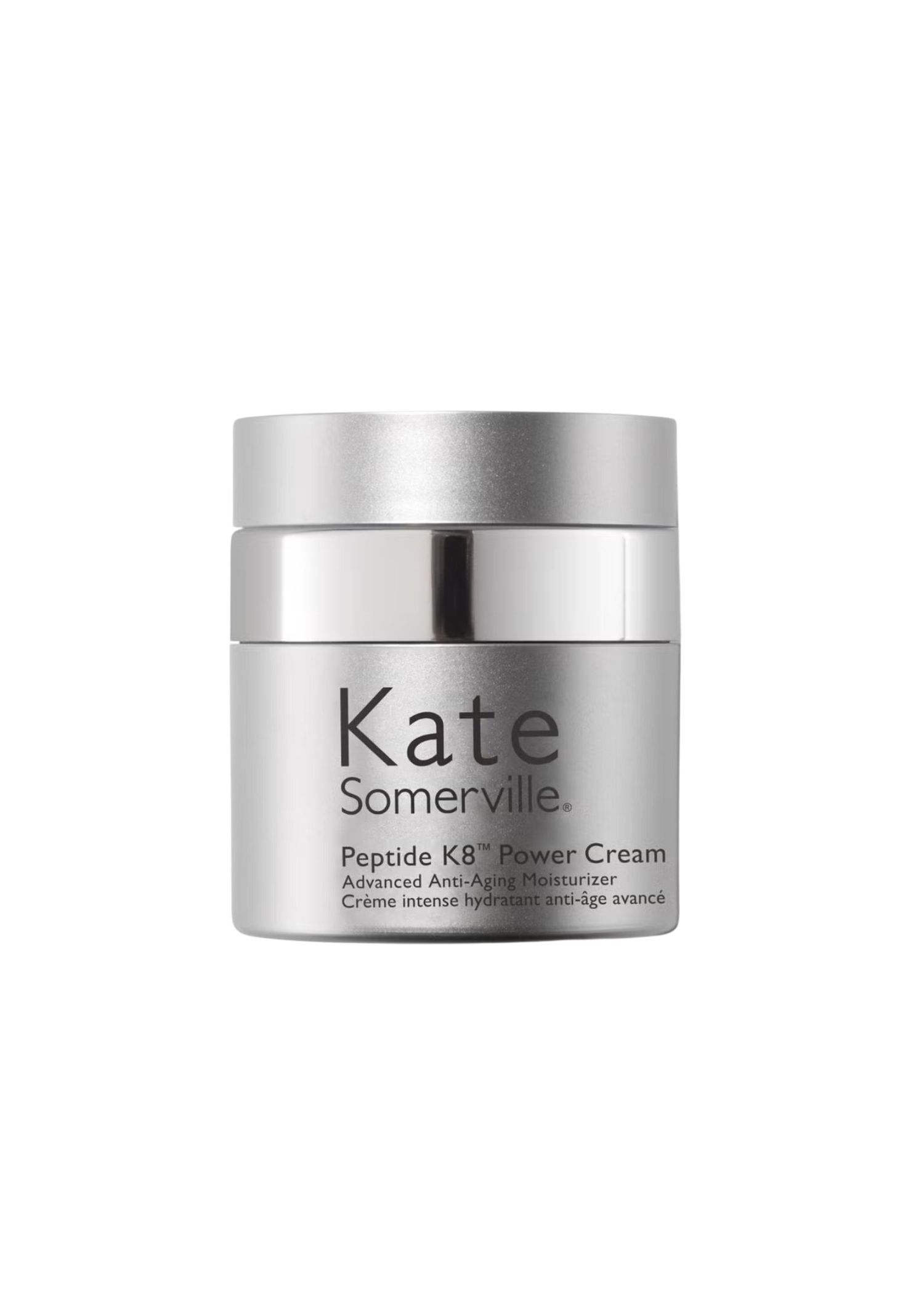Perhaps you’ve heard of copper peptides, the powerhouse skincare ingredient that boasts a slew of benefits, including enhancing glow and building collagen and elastin. Below, all you need to know about the trending ingredient and the best copper peptide products to shop now
All products featured on Vogue are independently selected by our editors. However, when you buy something through our retail links, we may earn an affiliate commission.
By now, many of us have already welcomed vitamin C into our skincare routines – one of the beauty sphere’s biggest hitters and ubiquitous in most serums and creams. But another, more under-the-radar ingredient has been making waves recently and could even steal vitamin C’s crown when it comes to softening wrinkles, shielding against damaging free radicals and improving skin tone. Cue copper peptides: the dark horse of the skincare world that makes even sensitive skin sing.
Copper peptides are naturally present in the body, but as is the case with most good things, their levels decrease with age. Below, we speak to aesthetic doctor and skincare expert Dr Ana Mansouri to get the low-down on copper peptides and learn how to supplement our skincare routine with this hero ingredient.
What are copper peptides?
“Peptides are short chains of amino acids that make up the proteins in your skin,” explains Dr Mansouri. “These proteins are essentially the ‘building blocks' of our skin and have different functions depending on the type of amino acids they’re comprised of.” Copper peptides, specifically, Dr Mansouri says, “commonly refer to the complex medically known as copper Tripeptide-1 or GHK-Cu, which is found naturally in some bodily fluids and is composed of three amino acids, glycine-histidine-lysin.” These amino acids readily bond with copper enzymes.
What do copper peptides do for your skin?
“Studies have shown that copper peptides have multiple benefits for the skin,” says Dr Mansouri. “It is known to play an important role in the body's healing process by promoting anti-inflammatory pathways, meaning it’s a great ingredient for treating scarring and redness.” And while our collagen levels and skin elastin inevitably decreases as we age – a process accelerated by excessive UV exposure or smoking, for instance – incorporating copper peptides into a skincare routine can help rebuild these connective tissues, which are essential for a smooth and bouncy complexion. As Dr Mansouri notes, “Copper also acts as an essential co-enzyme in the process of producing collagen and elastin to improve our skin’s elasticity.”
What's more, she adds, “There is also evidence that copper peptides can increase hyaluronic acid, which helps to hydrate skin and soften fine lines, and that it plays a role in maintaining an even skin tone.”
Are copper peptides better antioxidants than vitamin C?
“It’s difficult to make a comparison as scientific data shows both vitamin C and copper peptides have antioxidant benefits,” says Dr Mansouri. “Where copper peptides perhaps have an advantage is that they mop up free radicals but are still well-tolerated and can be conveniently integrated into your current skin regimen without causing issues or interactions.” In other words, think of copper peptides as a gentler alternative for vitamin C. However, for the best results, it's advisable to incorporate both in your skincare routine at different times.
Can you use copper peptides with vitamin C?
While copper peptides can be seamlessly combined with most skincare ingredients, Dr Mansouri advises against using copper peptides alongside vitamin C at the same time. “They shouldn’t be used together as there’s a possibility that copper may oxidise vitamin C,” she explains. “Apply them at different times of the day or different days of the week to reap the maximum benefits and limit the possibility of this happening.”
A good approach is, for example, to use vitamin C in your morning skincare routine, as it neutralises free radicals caused by pollution and UV rays while acting as an extra layer of protection, supporting your SPF. Then, reserve copper peptides for your PM regime, which will aid in stimulating collagen production and skin rejuvenation overnight.
Can you use copper peptides with retinol?
Speaking of the nighttime routine – where another supercharged anti-ageing ingredient, retinol, belongs – you might be wondering: can you use copper peptides with retinol? The answer is yes. However, there are a few things to consider. If you have sensitive skin, your best bet is to avoid layering copper peptides and retinol in the same routine. While retinol increases cell turnover, copper peptides support repair and fortify the skin barrier. Used together, they may increase irritation or redness. To minimise the risk, consider alternating them on different nights or incorporate copper peptides in your AM routine when you're not using vitamin C.
Are copper peptides safe to use?
“The data suggests copper peptides is a safe skin ingredient and it is not known to be an irritant,” Dr Mansouri notes. “It may therefore be more suitable for sensitive and reactive skin in comparison to vitamin C, but in my opinion both are solid ingredients in a skincare routine.”
That said, as with any new ingredient introduced into your skincare routine, it's advisable to perform a patch test before full application to see if any irritation or allergic reactions arise. Apply a pea-sized amount to behind your ear, on your wrist or forearm, and wait 24 hours. Do not use the product if you experience redness, itchiness, hives or burning.

